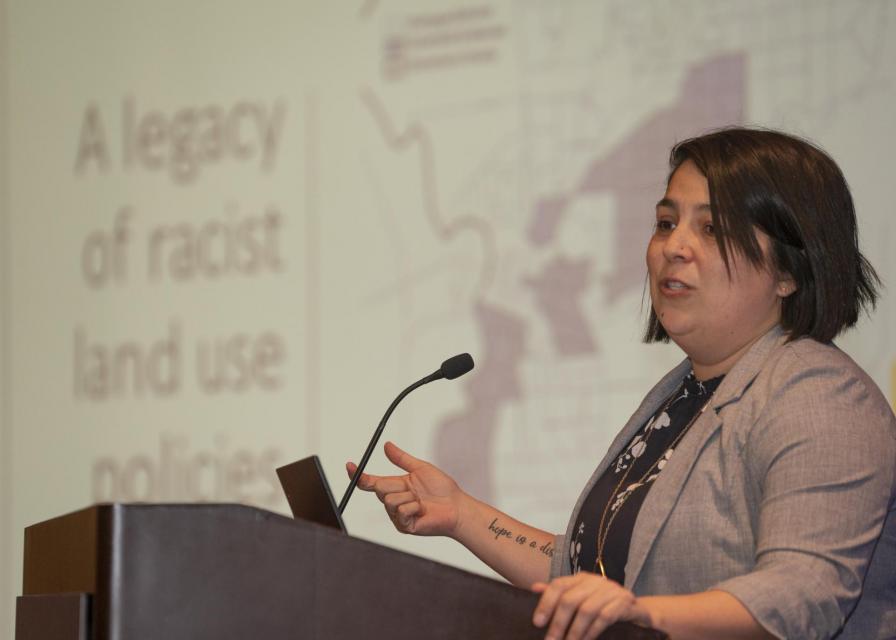When Sacramento City Councilmember Katie Valenzuela was in elementary school in Oildale she tried out for soccer. When she ran, her lungs would feel tight, her chest would hurt, and she would feel that she might pass out. She thought that was normal.
“We didn’t know this wasn’t something that happened to all people when they run a mile at their elementary schools,” she said. “We thought we all have to stop afterwards and sit down and put your heads between our knees and wait until we can catch our breath.”
At the CFT March Summit in Sacramento, Valenzuela told the attendees that their work for children and families was closely connected to what she does. When she went to UC Davis, she heard a professor talk about environmental justice using the example of kids with asthma in the Central Valley which led Valenzuela to working on environmental justice issues in California.
Valenzuela talked about how environmental justice confronts the racist history of where people live, and to illustrate her point, she projected a map of Sacramento showing areas where it had been prohibited to sell to people of color. The areas where people of color were able to live are the one without trees and parks, closer to sources of pollution, with less safe roads and access to healthy food, she said. She added that members of CFT see the impact of climate injustice on the students – and families — they work with.
She also talked about policy issues she and others are working on, such as trying to keep oil wells away from schools and parks. The negative health effects of these don’t only show up in respiratory issues and cancer, but in reproductive and mental health as well, she said.
She also brought up false solutions, like carbon capture and storage, which she says happens a lot in the Gulf Coast areas.
“It’s basically a way for the fossil fuel companies to keep doing what they’re doing and saying it’s okay, because we’re capturing the carbon,” she said. “What they do with that carbon, though, is they put it in pipelines.”
Valenzuela told a grim story about a pipeline exploding in a small town in Mississippi in 2023. People threw up, passed out and went into cardiac arrest- with no idea why since carbon is odorless.
Hydrogen is not a solution either, Valenzuela claims.
“If I had a dollar for every time a politician mentioned hydrogen to me, I could buy you all lunch,” she said.
Most of the hydrogen produced in California is from fossil fuel companies, she said, and we would need an all-new infrastructure and pipelines to use it. Valenzuela mentioned the movie, The Glass Onion, where the house exploded because it was powered by hydrogen.
“I always joke that satire is supposed to teach us something,” she said. “We need to push ourselves past these seemingly easy solutions, and this is a huge fight.”
Kelly Mayhew, the chair of CFT’s labor and climate justice education committee as well as of the AFT Guild of San Diego and Grossmont-Cuyamaca Community Colleges, got up during the Q&A to thank Valenzuela for her work and to assure her that CFT had a climate justice agenda and had been working on just the things Valenzuela mentioned.
“We have coalitions with area partners, and we have legislation,” Mayhew said. “We also created a curriculum for educators to use in their classrooms, to teach about climate change with a special focus on climate justice.”
Someone with the Los Angeles College Faculty Guild, AFT 1521 had another comment, having to do with a famous hydrogen accident in 1937 when an airship caught fire, killing 36 people.
“If you can’t convince people with current facts, maybe you could just mention the Hindenburg,” she suggested.

